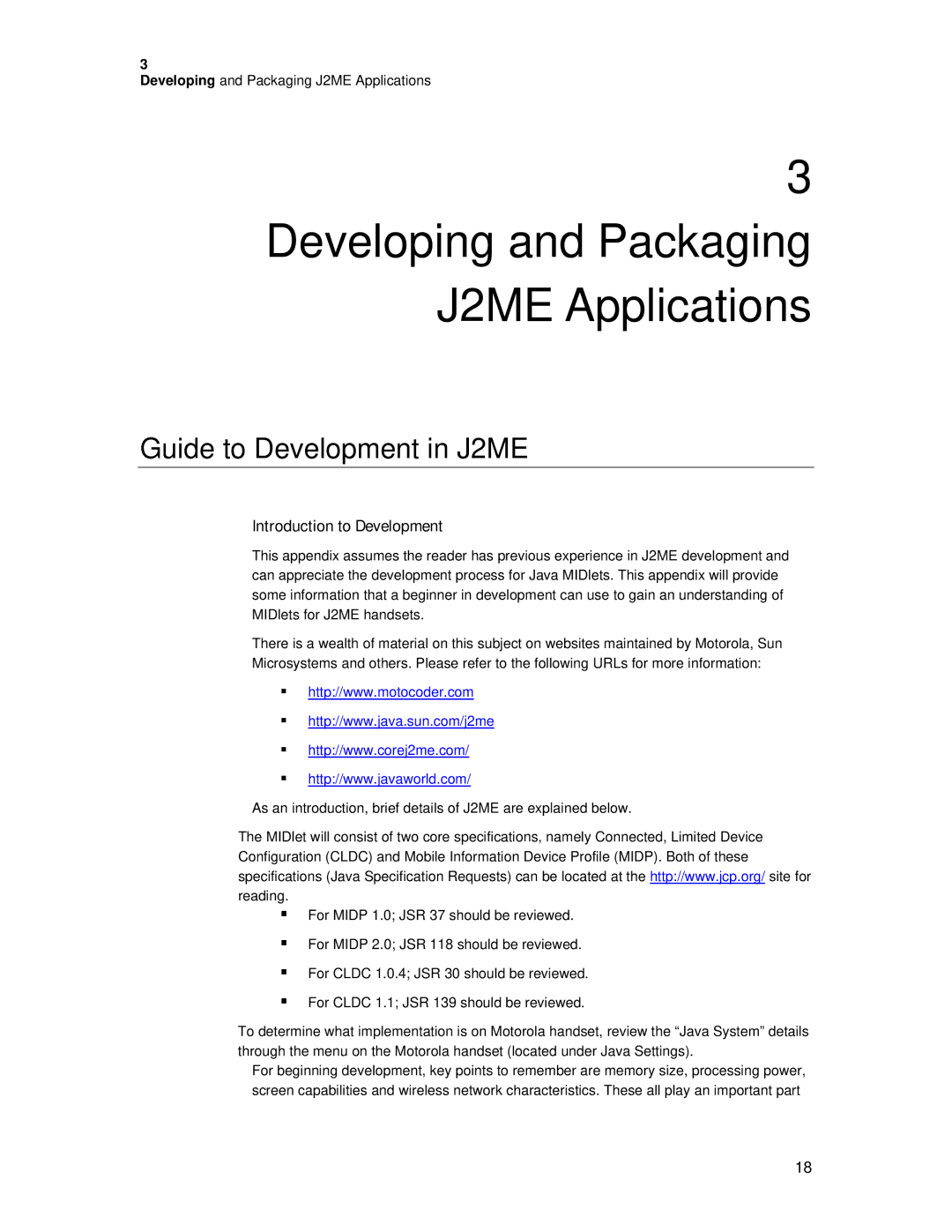3
Developing and Packaging J2ME Applications
3 Developing and Packaging J2ME Applications
Guide to Development in J2ME
Introduction to Development
This appendix assumes the reader has previous experience in J2ME development and can appreciate the development process for Java MIDlets. This appendix will provide some information that a beginner in development can use to gain an understanding of MIDlets for J2ME handsets.
There is a wealth of material on this subject on websites maintained by Motorola, Sun Microsystems and others. Please refer to the following URLs for more information:
http://www.motocoder.com
http://www.java.sun.com/j2me
http://www.corej2me.com/
http://www.javaworld.com/
As an introduction, brief details of J2ME are explained below.
The MIDlet will consist of two core specifications, namely Connected, Limited Device Configuration (CLDC) and Mobile Information Device Profile (MIDP). Both of these specifications (Java Specification Requests) can be located at the http://www.jcp.org/ site for reading.
For MIDP 1.0; JSR 37 should be reviewed.
For MIDP 2.0; JSR 118 should be reviewed.
For CLDC 1.0.4; JSR 30 should be reviewed.
For CLDC 1.1; JSR 139 should be reviewed.
To determine what implementation is on Motorola handset, review the “Java System” details through the menu on the Motorola handset (located under Java Settings).
For beginning development, key points to remember are memory size, processing power, screen capabilities and wireless network characteristics. These all play an important part
18
